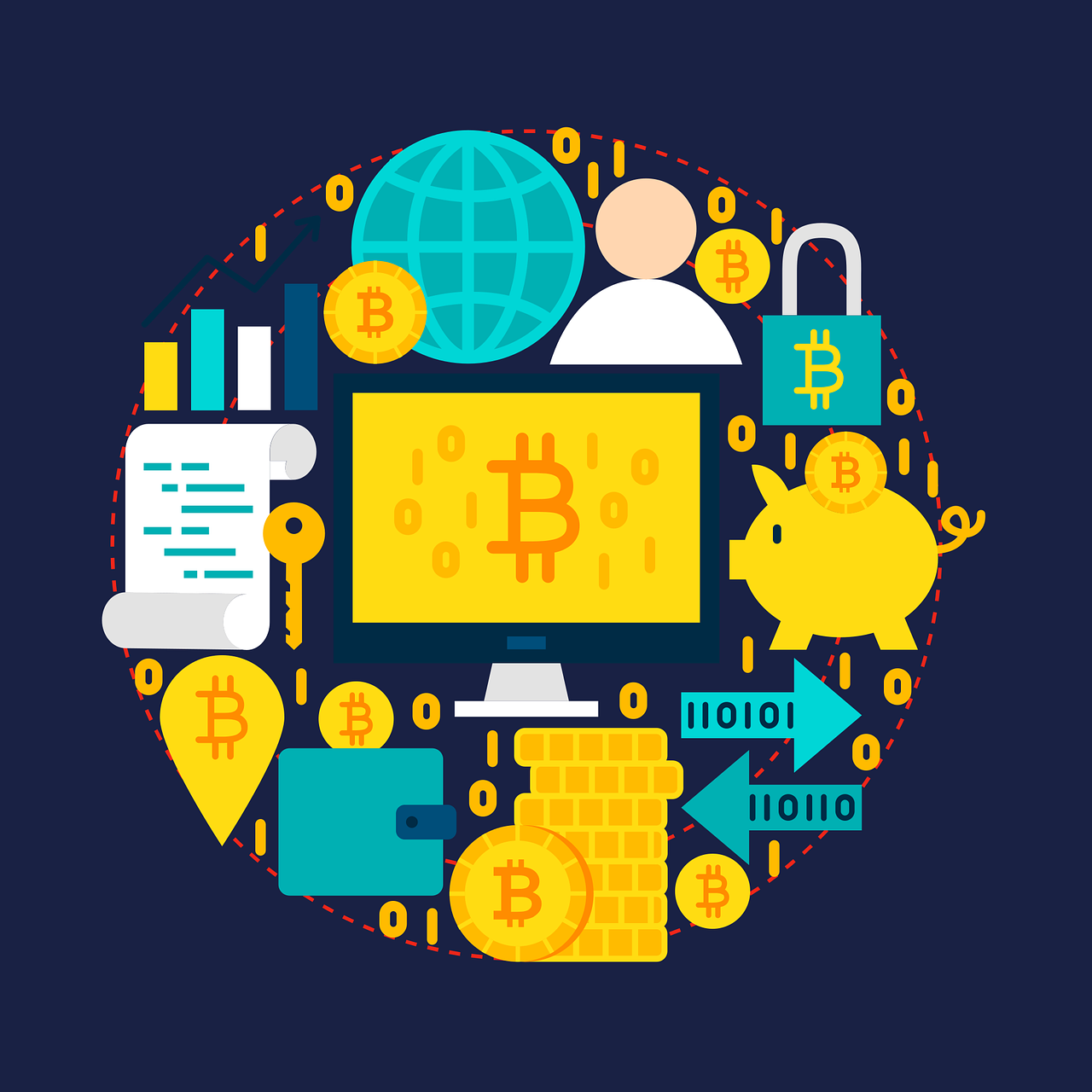
In today's interconnected world, where the internet and other communication technologies play a vital role in our daily lives, the concept of censorship resistance has become increasingly significant. Censorship resistance refers to the ability of individuals or organizations to freely communicate and access information without any interference or restrictions from external entities, such as governments, corporations, or other third-party intermediaries. It encompasses the use of technology, policies, and strategies that enable the free expression and access to information.
Importance of Censorship Resistance
Censorship resistance holds immense importance in upholding the values of free expression, privacy, and democracy. Let's delve into some of the reasons why censorship resistance is crucial:
1. Protection of Freedom of Speech
Censorship resistance ensures that individuals can express themselves freely and openly, without the fear of censorship or retribution. This is particularly vital in societies where the government or powerful entities may seek to limit or control speech that challenges the status quo.
2. Promotion of Privacy
Censorship resistance also promotes privacy by enabling individuals to communicate and access information without the fear of surveillance or tracking by external entities. This is crucial for safeguarding sensitive or confidential information and ensuring individuals have control over their personal data.
3. Democratic Values
Censorship resistance plays a crucial role in promoting democratic values by enabling free and open discourse and holding those in power accountable. Without censorship resistance, those in power could control the flow of information and suppress the opinions of dissenters, making it difficult for people to make informed decisions and hold their leaders accountable.
4. Innovation and Creativity
Censorship resistance fosters innovation and creativity by allowing people to freely express and share ideas, knowledge, and information. This freedom of expression can lead to new and innovative solutions to social, economic, and political challenges, while also promoting progress and development.
Overview of Censorship in Different Contexts
Censorship takes various forms and is enforced in different contexts. Let's explore some of the ways in which censorship is implemented:
1. Media Censorship
Media censorship occurs when governments or other entities attempt to control the flow of information through traditional media outlets such as newspapers, radio, and television. This can involve the suppression of certain news stories or the imposition of editorial guidelines to restrict free speech.
2. Artistic Censorship
Artistic censorship refers to the suppression of creative expression, particularly in the form of art, music, literature, or film. Governments or other entities may find certain works offensive, obscene, or politically sensitive, leading to their censorship.
3. Political Censorship
Political censorship involves suppressing political speech or expression, particularly when it challenges the status quo or criticizes those in power. This can include the censorship of social media, the internet, and other digital platforms.
4. Internet Censorship
Internet censorship entails the suppression of online content and communication. This can include the blocking of certain websites, the monitoring of online activities, and the implementation of legal penalties.
Examples of Censorship
Throughout history, numerous examples showcase the use of censorship to suppress dissenting views and maintain power. Let's explore a few notable examples:
1. Roman Empire
The Roman Empire implemented strict censorship laws. For instance, Emperor Augustus banned books deemed treacherous or immoral, and anyone caught reading or possessing such books could face severe punishment.
2. Nazi Germany
The Nazi regime in Germany infamously employed widespread censorship and propaganda campaigns. The government controlled all media and strictly censored anything that challenged Nazi ideology or portrayed the regime negatively.
3. Soviet Union
The Soviet Union had stringent censorship laws, particularly during the Stalinist era. The government controlled all forms of media and suppressed any dissenting views, often resorting to violence and imprisonment to silence critics.
4. China
The Chinese government has a long history of censorship, especially in the realms of politics and media. The government exercises heavy control over the internet, with the "Great Firewall of China" blocking access to many websites and social media platforms.
These examples illustrate the diverse contexts in which censorship has been employed throughout history to suppress dissenting views and maintain power. Censorship resistance seeks to promote the free flow of information and prevent censorship from being used as a tool for oppression.
Decentralization and Blockchain Technology
In the realm of technology, censorship resistance has gained increasing importance. The internet and other communication technologies have become essential for social, political, and economic interactions. Decentralization and blockchain technology are two concepts that can help promote censorship resistance in technology.
Decentralization
Decentralization refers to the distribution of power and control across a network of nodes or individuals, rather than relying on a central authority. Decentralization can assist in promoting censorship resistance by enabling individuals to communicate and access information without relying on centralized platforms or intermediaries.
Blockchain Technology
Blockchain technology is a decentralized, distributed ledger that enables secure and transparent transactions without the need for a centralized authority. It can help promote censorship resistance by allowing individuals to create and share content on a decentralized platform, where external entities cannot easily censor or alter the content.
While decentralized technology holds promise for promoting censorship resistance, it also faces challenges. Decentralized networks can be difficult to scale and may not always be user-friendly or accessible to individuals with limited technical knowledge. Additionally, decentralized cryptocurrency networks can still be susceptible to attacks or hacking attempts, compromising the security and integrity of the network.
Despite these challenges, decentralization and blockchain technology offer promising solutions for promoting censorship resistance in technology.
Other Examples of Censorship-Resistant Technology
Censorship-resistant technology is gaining importance in a world where governments and other entities often seek to control the flow of information and suppress dissenting views. Let's explore some additional examples of censorship-resistant technology:
1. Tor
The Tor network is a decentralized and anonymous network that enables users to browse the internet and communicate anonymously. Tor is resistant to censorship because it is difficult for external entities to track or censor online activities on the network.
2. Decentralized Social Media
Decentralized social media platforms, such as Mastodon, Diaspora, and Scuttlebutt, enable users to communicate and share information without relying on centralized platforms like Facebook or Twitter. These platforms are resistant to censorship because they are decentralized, making it challenging for external entities to control the flow of information.
3. Virtual Private Networks (VPNs)
Virtual private networks (VPNs) are secure and encrypted networks that enable users to browse the internet and communicate securely and anonymously. VPNs can be used to bypass censorship and access information that may be restricted in certain countries.
4. Mesh Networks
Mesh networks are decentralized and peer-to-peer networks that enable users to communicate and share information without relying on centralized infrastructure. Mesh networks can create resilient and censorship-resistant communication networks, particularly in areas where traditional communication infrastructure may be unreliable or restricted.
These examples demonstrate the potential of censorship-resistant technology to promote freedom of expression and privacy. By leveraging decentralized, peer-to-peer networks and technologies such as encryption and blockchain, individuals and groups can communicate and access information freely and securely, without fear of censorship or retribution.
Challenges to Censorship Resistance in Society
While censorship resistance is vital for promoting democracy and freedom, numerous challenges must be overcome. One of the significant challenges is government censorship, where governments may seek to control the flow of information and suppress dissenting views. Governments can implement censorship through website blocking, online activity monitoring, and the imposition of fines.
Another challenge lies in the increasing influence of powerful corporations. Large social media platforms like Facebook and Twitter have immense power to control what content is seen and shared. They are often criticized for censoring certain views or allowing the spread of misinformation. Additionally, the rise of "fake news" and propaganda makes it difficult for individuals to distinguish between accurate and false information.
In conclusion, censorship resistance is crucial for promoting democracy, freedom of expression, and access to information in society. However, there are many challenges to overcome, including government censorship, corporate influence, and the spread of false information. By promoting censorship resistance, protecting freedom of speech and expression, and advocating for policies that safeguard these rights, individuals and societies can ensure that democratic values are upheld, and information flows freely and openly.
Frequently Asked Questions (FAQs)
What Is Censorship-Resistant Communication?
Censorship-resistant communication refers to the ability of individuals or organizations to communicate freely without interference or restrictions from external entities, such as governments or corporations. This can be achieved by using decentralized technologies and platforms that cannot be easily controlled or censored.
What Do You Mean by Censorship?
Censorship refers to any action taken to suppress or limit the dissemination of information. It can occur in various contexts, such as media, arts, politics, and the internet. Censorship can be used to control the flow of information, suppress dissenting views, and maintain the status quo.
Can You Censor a Blockchain?
While it is challenging to censor a blockchain, it is not entirely immune to attacks or attempts to control the network. However, the decentralized nature of a blockchain makes it more resistant to censorship than centralized platforms. Additionally, using encryption and other security measures can help protect the integrity and security of a blockchain network.
In conclusion, censorship resistance is crucial for promoting freedom of expression, privacy, democracy, and innovation in technology and society. By embracing decentralized technologies, advocating for policies that protect freedom of speech, and being vigilant against censorship, we can create a society where individuals can communicate and access information freely, without fear of censorship or retribution.
OUR OFFICIAL CHANNELS
Website - https://www.clanity.com/
Discord - https://discord.gg/6rDdVwextJ
Telegram - https://t.me/clanity
Twitter - https://twitter.com/clanityofficial
Facebook - https://www.facebook.com/clanityofficial
Linkedin - https://www.linkedin.com/company/clanityofficial/
Medium - https://medium.com/@clanity
Reddit - https://www.reddit.com/r/Clanity/
Instagram - https://www.instagram.com/clanityofficial/
Reward your customers with reliable blockchain rewards
Reward your customers with reliable blockchain rewards
Start the right way to blockchain rewards with Clanity!

